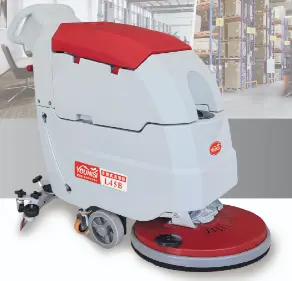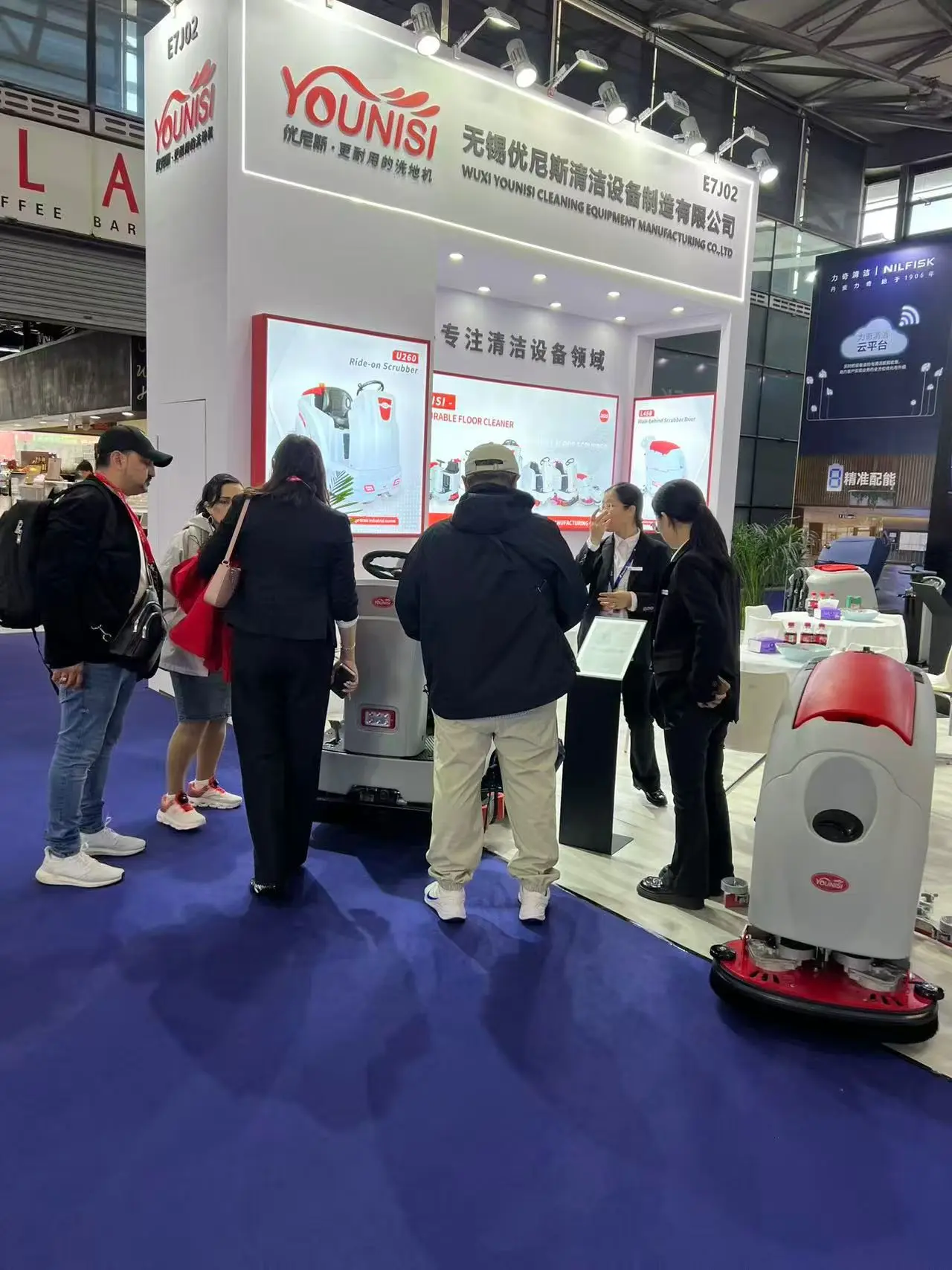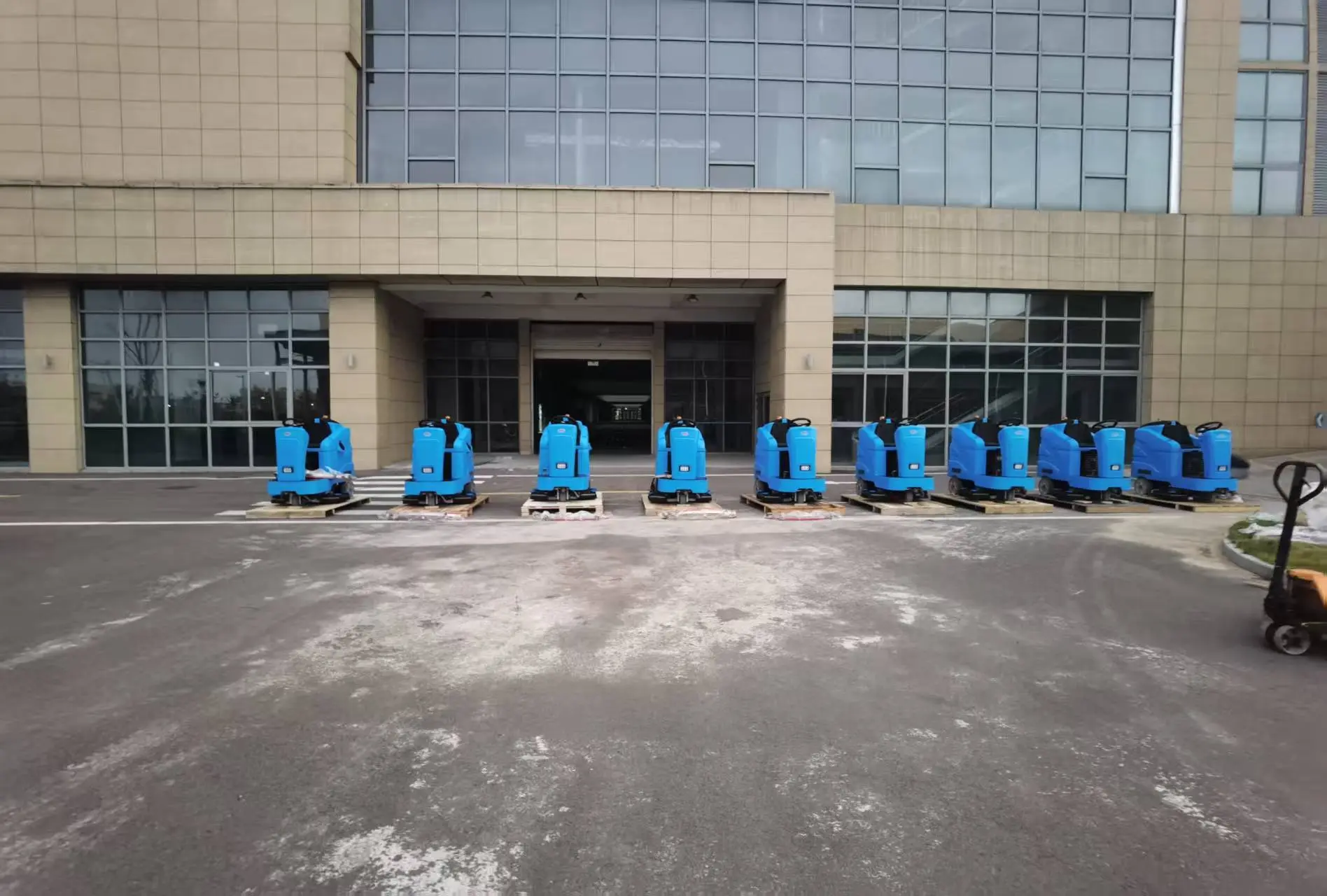Essential Tips for Importing Small Scrubbers from Trusted Exporters
Key Takeaways
- Understand the legal and regulatory requirements for importing Small Scrubbers to avoid costly mistakes and delays.
- Conduct thorough background checks on potential exporters, including reviews and certifications, to ensure reliability.
- Request product samples before placing bulk orders to assess quality and functionality firsthand.
- Streamline your importation process by managing logistics, organizing accurate documentation, and controlling costs.
- Build strong relationships with exporters through clear communication and long-term partnerships for better service and pricing.
- Stay updated on regulatory changes and consult with customs brokers to navigate complex import laws effectively.
- Prioritize product quality by inspecting shipments and ensuring compliance with industry standards throughout the import process.
Understanding Legal and Regulatory Requirements
Navigating the legal and regulatory landscape is one of the most critical steps when importing small scrubbers. By understanding the rules and ensuring compliance, you can avoid costly mistakes and delays. Let’s break it down into manageable parts.
Researching Import Laws and Compliance Standards
Before you start importing, you need to familiarize yourself with the certifications and standards required for small scrubbers. Certifications like ISO, CE marking, and compliance with the Toxic Substances Control Act (TSCA) ensure that the products meet safety and quality benchmarks. These certifications not only protect your business but also build trust with your customers.
You should also dive into tariff codes, import duties, and trade barriers. Tariff codes classify products for customs purposes, and knowing the correct code for small scrubbers helps you calculate duties accurately. Trade barriers, such as quotas or restrictions, can impact your import plans. Researching these details upfront saves you from unexpected expenses.
Obtaining Necessary Licenses and Documentation
An Import License is often a must-have when bringing small scrubbers into certain countries. This license ensures that your business complies with local regulations. Without it, customs may hold your shipment, causing unnecessary delays.
Proper documentation is equally important. Customs clearance requires accurate paperwork, including invoices, packing lists, and certificates of origin. Double-checking these documents ensures smooth processing at the border. Missing or incorrect paperwork can lead to fines or even confiscation of goods.
Staying Updated on Regulatory Changes
Import laws and compliance requirements can change frequently. Staying informed about these updates keeps your business ahead of potential issues. You can monitor government websites or subscribe to industry newsletters for the latest information.
Consulting with customs brokers or import specialists is another smart move. These professionals have the expertise to guide you through complex regulations. They can also help you adapt to changes quickly, ensuring your import process remains seamless.
“Understanding the legal and regulatory requirements is the foundation of a successful import strategy. It protects your business and ensures compliance every step of the way.”
By following these steps, you’ll be better prepared to handle the complexities of importing small scrubbers. A trusted small scrubber exporter will also appreciate your diligence, making the partnership smoother and more reliable.
Identifying and Evaluating a Trusted Small Scrubber Exporter
Finding the right small scrubber exporter can make or break your importing experience. A reliable exporter ensures you receive high-quality products while avoiding unnecessary headaches. Let’s explore how you can identify and evaluate a trusted partner.
Conducting Thorough Background Checks
Start by digging into the exporter’s reputation. Look for reviews, testimonials, or case studies from other businesses they’ve worked with. Positive feedback often signals reliability and professionalism. If you notice consistent complaints, it’s a red flag you shouldn’t ignore.
Membership in trade associations or possession of certifications adds another layer of trust. These affiliations show that the exporter adheres to industry standards. Check if they belong to reputable organizations or hold certifications relevant to small scrubbers. This step helps you separate credible exporters from less reliable ones.
Verifying Exporter Credentials and Reliability
Request product samples before committing to a bulk order. Samples let you assess the quality of the small scrubbers firsthand. Pay attention to the materials, durability, and overall craftsmanship. If the sample doesn’t meet your expectations, it’s better to know early.
Use online tools and platforms to verify the exporter’s credibility. Websites like Alibaba or Global Sources often include ratings and reviews for suppliers. These platforms also provide details about the exporter’s history, such as years in business or transaction volumes. Cross-check this information to ensure you’re dealing with a legitimate exporter.
Building Strong Exporter Relationships
Clear communication is key to building a successful partnership. Discuss your expectations upfront, including product specifications, delivery timelines, and payment terms. Miscommunication can lead to delays or disputes, so make sure both parties are on the same page.
Long-term partnerships often yield better results. When you work with the same small scrubber exporter over time, you build trust and consistency. A strong relationship can lead to better pricing, priority service, and improved product quality. Treat your exporter as a partner, not just a supplier.
“A trusted small scrubber exporter doesn’t just deliver products; they become a valuable part of your supply chain. Invest time in finding the right one.”
By following these steps, you’ll minimize risks and set yourself up for success. A thorough evaluation process ensures you choose an exporter who aligns with your business needs and values.
Ensuring Product Quality
When importing small scrubbers, maintaining product quality should be your top priority. High-quality products not only meet customer expectations but also protect your business reputation. Let’s explore how you can ensure the quality of your imports at every stage.
Inspecting Products Before Shipment
Requesting prototypes or samples for quality assessment
Before placing a bulk order, always request a prototype or sample. This step allows you to evaluate the product’s quality firsthand. Check the materials, functionality, and overall design. Does it meet your expectations? If not, you can address the issues early. Samples give you confidence in what you’re purchasing and help you avoid surprises later.
Hiring third-party inspection services for unbiased evaluations
Relying solely on the exporter’s word can be risky. Hiring a third-party inspection service ensures an unbiased evaluation of the small scrubbers. These professionals examine the products for defects, compliance, and overall quality. Their detailed reports provide peace of mind and help you make informed decisions. It’s a small investment that can save you from costly mistakes.
Confirming Product Specifications and Standards
Ensuring compliance with industry standards and specifications
Every industry has specific standards, and small scrubbers are no exception. Ensure the products comply with certifications like ISO or CE marking. These certifications confirm that the scrubbers meet safety and performance benchmarks. Compliance protects your business and builds trust with your customers.
Checking for warranties and after-sales support
A reliable small scrubber exporter will offer warranties and after-sales support. Warranties show that the exporter stands behind their products. After-sales support ensures you have assistance if issues arise. Always confirm these details before finalizing your order. They add an extra layer of security to your purchase.
Managing Quality Control During Transit
Using appropriate packaging to prevent damage
Even the highest-quality products can suffer damage during transit. Proper packaging is essential to protect small scrubbers from scratches, dents, or other issues. Discuss packaging requirements with your exporter. Reinforced boxes, padding, and waterproof materials can make a big difference.
Monitoring shipment conditions to maintain product integrity
Shipment conditions like temperature, humidity, and handling can impact product quality. Work with your exporter and shipping partners to monitor these factors. Tracking systems and real-time updates help you stay informed. Taking these precautions ensures the scrubbers arrive in perfect condition.
“Quality isn’t just about the product itself; it’s about the entire journey from the exporter to your hands.”
By following these steps, you’ll safeguard the quality of your small scrubbers. A trusted small scrubber exporter will appreciate your attention to detail, strengthening your partnership and ensuring long-term success.
Streamlining the Importation Process
Streamlining your importation process can save you time, money, and unnecessary stress. By focusing on logistics, documentation, and budgeting, you’ll ensure a smoother experience from start to finish.
Managing Logistics and Shipping
Choosing the most efficient shipping method (air, sea, or land)
Selecting the right shipping method is crucial for balancing cost and delivery time. Air freight works best for urgent shipments, but it’s often more expensive. Sea freight offers a cost-effective solution for larger orders, though it takes longer. Land transport suits regional imports and provides flexibility for smaller shipments. Evaluate your priorities—speed, cost, or volume—and choose the method that aligns with your business needs.
Partnering with reliable freight forwarders for smooth transit
A dependable freight forwarder simplifies the shipping process. They handle logistics, coordinate with carriers, and ensure your goods reach their destination without delays. Look for forwarders with a proven track record in handling small scrubbers. Check reviews, ask for recommendations, and verify their expertise in customs clearance. A good freight forwarder becomes an invaluable partner in your import journey.
Organizing Documentation and Paperwork
Preparing invoices, packing lists, and certificates of origin
Accurate documentation is the backbone of a successful import. Prepare detailed invoices that include product descriptions, quantities, and prices. Packing lists should outline the contents of each shipment, while certificates of origin verify where the products were made. These documents help customs officials process your shipment quickly and without issues.
Ensuring all customs clearance documents are accurate
Mistakes in customs paperwork can lead to delays, fines, or even confiscation of goods. Double-check every detail, from tariff codes to product descriptions. Work closely with your exporter to ensure all documents meet the requirements of your country’s customs authorities. Accuracy here saves you from unnecessary headaches later.
Controlling Costs and Budgeting
Calculating total landed costs, including duties and taxes
Understanding the total landed cost of your small scrubbers is essential for effective budgeting. This includes the product price, shipping fees, insurance, import duties, and taxes. Use online calculators or consult with customs brokers to get an accurate estimate. Knowing these costs upfront helps you set competitive pricing and avoid financial surprises.
Negotiating favorable payment terms with exporters
Payment terms can significantly impact your cash flow. Negotiate terms that work for both you and your exporter. Options like partial payments or extended credit periods can ease financial pressure. Clear communication about payment expectations builds trust and strengthens your relationship with the exporter.
“Streamlining your importation process isn’t just about efficiency—it’s about creating a system that supports your business goals.”
By managing logistics, organizing paperwork, and controlling costs, you’ll create a seamless importation process. A trusted small scrubber exporter will appreciate your professionalism, making the partnership even more rewarding.
Importing small scrubbers successfully requires a clear understanding of regulations, selecting the right small scrubber exporter, maintaining product quality, and streamlining your process. By applying these tips, you’ll simplify your journey and avoid unnecessary challenges. Take the time to research, plan, and build strong partnerships. Due diligence ensures smooth operations, while long-term relationships with exporters lead to consistent quality and reliability. Remember, every step you take now sets the foundation for your importing success. Start implementing these strategies today and watch your business thrive.
FAQ
What industries commonly use small scrubbers?
Small scrubbers are versatile tools used across various industries. You’ll find them in manufacturing plants, healthcare facilities, environmental management, and even food processing. These industries rely on scrubbers to maintain clean environments, improve air quality, and ensure compliance with safety standards.
Do I need an import license to bring in small scrubbers?
Yes, most countries require an import license for small scrubbers. This license ensures that your business complies with local regulations. Without it, customs may delay or hold your shipment. Check with your country’s trade authority to confirm the specific requirements.
How can I verify the quality of small scrubbers before purchasing?
You can request product samples from the exporter to assess quality firsthand. Inspect the materials, functionality, and overall design. For added assurance, hire a third-party inspection service. They provide unbiased evaluations and detailed reports on product quality.
What certifications should I look for when importing small scrubbers?
Look for certifications like ISO, CE marking, and compliance with the Toxic Substances Control Act (TSCA). These certifications confirm that the scrubbers meet safety, environmental, and quality standards. They also help build trust with your customers.
How do I calculate the total cost of importing small scrubbers?
To calculate the total landed cost, include the product price, shipping fees, insurance, import duties, and taxes. Use online calculators or consult with customs brokers for accurate estimates. Knowing these costs upfront helps you plan your budget effectively.
What’s the best way to choose a reliable small scrubber exporter?
Start by researching the exporter’s reputation. Look for reviews, testimonials, and trade association memberships. Request product samples to evaluate quality. Use online platforms like Alibaba to verify their credentials and transaction history. A thorough background check minimizes risks.
How can I ensure my shipment arrives in good condition?
Discuss packaging requirements with your exporter. Use reinforced boxes, padding, and waterproof materials to protect the scrubbers during transit. Monitor shipment conditions like temperature and humidity. Tracking systems can help you stay updated on the shipment’s status.
Should I hire a customs broker for importing small scrubbers?
Hiring a customs broker is a smart move, especially if you’re new to importing. They help navigate complex regulations, ensure accurate documentation, and handle customs clearance. Their expertise saves you time and reduces the risk of costly mistakes.
What shipping method works best for small scrubbers?
The best shipping method depends on your priorities. Air freight is fast but expensive, ideal for urgent shipments. Sea freight is cost-effective for large orders but takes longer. Land transport suits regional imports. Evaluate your needs and choose accordingly.
How do I build a strong relationship with my exporter?
Clear communication is key. Discuss expectations, product specifications, and payment terms upfront. Treat your exporter as a partner, not just a supplier. Long-term relationships often lead to better pricing, priority service, and consistent product quality.
“Importing small scrubbers doesn’t have to be complicated. With the right knowledge and preparation, you can simplify the process and achieve success.”



